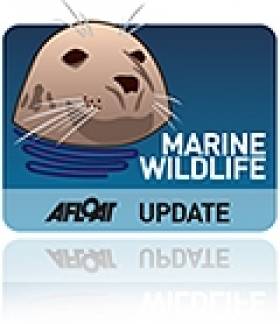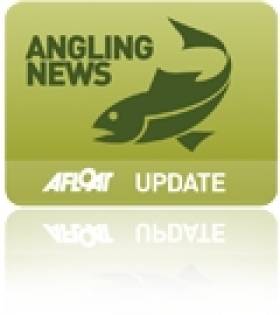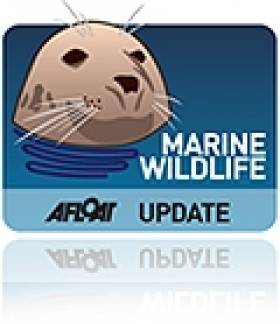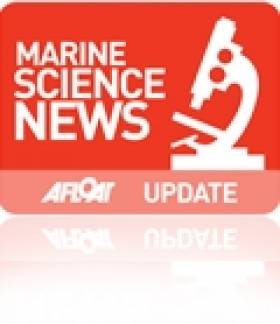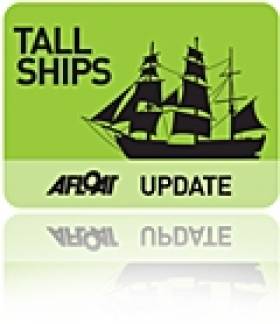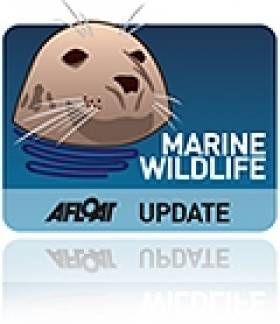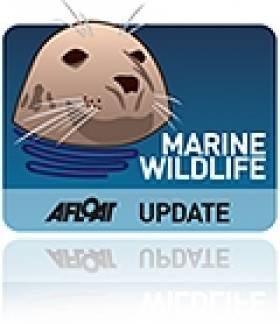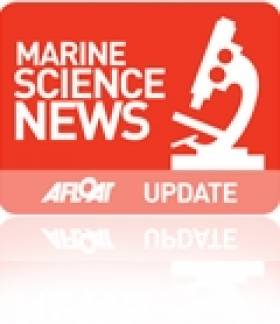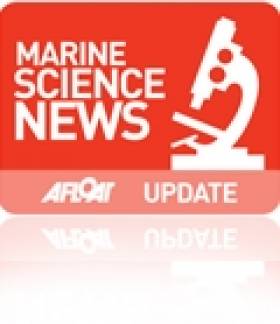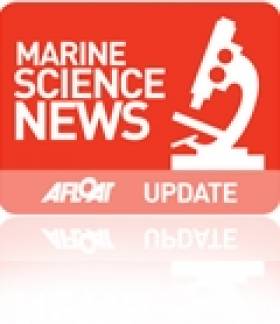Displaying items by tag: research
New Study Reveals Pike Are Native To Ireland
#NativeSpecies - Inland Fisheries Ireland says it welcomes the publication of an important scientific paper relating to one of Ireland’s key angling species – pike.
Long thought to have been introduced to Ireland in the last few hundred years, the new research shows that the colonisation history of pike (Esox lucius) is more complex, with an indication that they may have colonised naturally some thousands of years ago.
Computer modelling of genetic data has indicated that the species probably colonised Ireland in two waves. The first occurred approximately 8,000 years ago, close to the end of the Ice Age, and the second occurred approximately 1,000 years ago, with the Normans.
This provides for the first time evidence for natural colonisation of a freshwater fish to the island of Ireland.
Minister of State Fergus O’Dowd said he welcomed the findings, and commended "the excellent collaboration between UCD and Inland Fisheries Ireland, who have recently signed a MOU to support this type of ground-breaking research”.
Dr Cathal Gallagher, head of research and development at IFI, said: “These important results will influence IFI’s ongoing management strategy for this species.
"Further investigations, using new and developing genomic techniques, will be used to endorse these findings.”
Lead author Debbi Pedreschi added that “what was really intriguing was how the examination of genetic material allowed us to build a hypothesis, which was then found to fit extremely well into the historical and archaeological background.”
Dr Mary Kelly-Quinn, who was co-supervisor of the project, said: “Debbi’s results will challenge us to consider the future management of this species and marks a significant contribution of a young researcher in this area.”
Prof Stefano Mariani, now at the University of Salford, believes that this investigation embodies the nature of conservation biology.
“We should always question long-held assumptions, and examine the best available evidence," he said. "At this point, it would be irresponsible to ignore these strong patterns of pike diversity, but we are also keen to investigate this further and provide a more exhaustive picture."
The study was conducted in partnership with UCD's School of Biology & Environment Science, and with support from the Irish Federation of Pike Angling Club and the University of Salford, under the co-supervision of Prof Mariani. The paper will be available online on Friday 18 October.
Angling Worth €0.75bn to Irish Economy Annually
#Angling - Minister of State for Natural Resources Fergus O’Dowd has warmly welcomed the findings of a new national economic study that reveals for the first time that angling and angling tourism in Ireland are generating a dividend in excess of €0.75 billion within the Irish economy every year.
The study, commissioned by Inland Fisheries Ireland (IFI), shows direct spending on angling in Ireland amounted to €555 million in 2012, with indirect spending worth an additional €200 million and totalling €755 million.
Recreational angling was also found to directly support 10,000 existing Irish jobs, many of which are located in the most peripheral and rural parts of the Irish countryside and along our coastline.
The study - titled a Socio-Economic Study of Recreational Angling in Ireland - found that 406,000 people were involved in recreational angling in Ireland last year, with over 150,000 of these travelling from Northern Ireland and overseas.
Over a quarter of a million Irish adults (252,000) held a fishing rod last year with sea angling along with salmon and brown trout angling seen as the most popular categories where domestic anglers are concerned.
The quality of the Irish angling product, the friendliness and hospitality of the Irish people and our outstanding scenery were cited amongst the principal attractions of Ireland as an international destination for recreational angling. Tourism angling spend is estimated at approximately €280 million on an annual basis.
Speaking at the launch of the study at the Royal College of Physicians on Kildare Street, Minister O'Dowd admitted that the findings had come as a surprise, as this was the first national survey which was able to put a value on angling to the economy and that up till now the economic significance of the sector had been greatly underestimated.
The minister said the study not only highlighted to him the major economic impact that angling makes to the Irish economy, but it also underlined the need to continue to protect and nurture this valuable resource, if it is to be allowed to develop and grow to achieve its full potential.
“The results contained in this report are significant,” he said. “Angling, as a recreational pursuit, is a major contributor to the fabric of Irish life in all parts of the country, particularly in rural and peripheral areas.
"From the industry perspective, the strategic development and marketing of our angling product is essential and has been given new impetus in light of what we now know about the visiting and spending patterns of anglers and what is important in drawing them here.
He added that it is "equally clear to me that maintaining a strong focus on the protection and conservation of this vital resource into the future is absolutely key if we are to properly sustain and grow these benefits to anglers, angling businesses and the Irish economy.”
The study, commissioned by IFI in early 2012 and undertaken by consultants Tourism Development International, was undertaken to help underpin effective strategic planning and decision making in respect of the angling product’s development and marketing.
IFI chief Dr Ciaran Byrne commented at the launch that the national fisheries agency “will now review the results of the survey in conjunction with our stakeholders. Clearly fish stocks and fish habitat must be conserved, protected and developed. Angling businesses must be given every opportunity to win business and secure and grow the jobs within the sector.
"IFI is committed to these goals and together with our stakeholders and the support of Government, state agencies and a new angling marketing and development plan we will achieve them.”
The study is available to download from the IFI website HERE.
New Atlas Of Ireland's Offshore Marine Mammals Launched
#MarineWildlife - Minister for Arts, Heritage and the Gaeltacht Jimmy Deenihan was on board the Irish Whale and Dolphin Group's (IWDG) research vessel Celtic Mist yesterday 16 July to launch a new atlas of marine mammals in Ireland's coastal waters.
The Atlas of the Distribution and Relative Abundance of Marine Mammals in Irish Offshore Waters marks the culmination of six years of surveys involving more than 1,000 says at sea, and provides up to date information for 19 species of cetaceans: whales, dolphins and porpoises.
Ireland is home to a remarkable diversity of whales and dolphins, and the new atlas shows how common and widespread some of these species are - from the harbour porpoise and common dolphin to the much larger fin whale.
Not all Irish cetaceans are so common, however, and the atlas also highlights the importance of Irish waters for some of the Atlantic’s rarer deepwater species such as the sperm whale and several beaked whales.
These are species about which very little is known, the IWDG says more work will be required in the coming years to allow a better understanding of the conservation requirements of these animals.
Every six years, Ireland is obliged to report on the conservation status of all of its marine mammals as part of its commitments under the European Union’s Habitats Directive. The data from this atlas has already proved invaluable in underpinning Ireland’s 2013 report to the European Commission.
Speaking at the launch yesterday in Dun Laoghaire, Minister Deenihan commended the work undertaken to produce the atlas.
“This fine atlas is the culmination of many years of work by a large number of people and I’m happy to note that it was produced under a project funded over several years by my department in collaboration with the Marine Institute," he said.
"As minister, I have also extended the protection afforded to whales and dolphins through the designation of additional marine special areas of conservation. I would like to thank the Irish Whale and Dolphin Group for this excellent publication.”
The atlas is available as a PDF to download HERE.
#MarineScience - Suitable candidates in the marine science field are invited to apply for the accredited continuous professional development module (CPD) titled Applied Marine Biological Sampling and Data Collection.
The module will take place from 30 September to 25 October 2013 and is offered by Galway-Mayo Institute of Technology (GMIT) and the Strategic Marine Alliance for Research and Training (SMART).
Applied Marine Biological Sampling and Data Collection aims to provide attendees with the detailed practical knowledge and skills necessary to design and implement biological sampling and data collection campaigns on marine commercial platforms.
The module is aimed at postgraduate students of marine science and marine industry personnel.
Four days of ship-time sampling and data collection onboard the RV Celtic Voyager and the IWDG's Celtic Mist off Cork and in the Shannon Estuary respectively are supported by three days of intensive laboratory practicals and lectures in GMIT.
- onboard, at practicals and lectures is required from 7-13 October with all other elements accomplished through student-centred distance learning.
Themes addressed include quantitative sampling of fisheries and benthos; surveying and monitoring methodologies for cetaceans and seabirds; tissue sampling and preservation; and oceanographic data collection and sampling.
Completion of the module results in an award of 5 credits at NFQ level 9 under the European Credit Transfer System (ECTS).
The Strategic Marine Alliance for Research and Training (SMART) is a marine science partnership programme designed to further develop capacity in carrying out offshore operations on board research vessels for third level students of marine-related science and technologies.
This strategic collaborative inter-institutional programme is led and funded by Irish Higher Education Institutions (HEIs) and the Marine Institute, and is also supported by the Higher Education Authority (HEA).
The online application forms is available HERE or my e-mailing [email protected]. Further details on the course and its instructors is included in a PDF available to read or download HERE.
Celtic Mist in Dun Laoghaire Ready For Gathering Cruise
#CelticMist - The Irish Whale and Dolphin Group's (IWDG) research yacht Celtic Mist is currently docked in Dun Laoghaire awaiting the start of The Gathering Cruise around Ireland.
As previously reported on Afloat.ie, the 19-day event will see some 100 cruising boats proceed along the east and south coasts of Ireland from Dublin to Cork and Kerry.
Along the way they will be recording any sightings of whales or dolphins along the way using forms supplied by the IWDG.
Celtic Mist will join the flotilla as it departs Dun Laoghaire Harbour on 18 July headed for Kinsale on 24 July, and a second leg from Kinsale to Dingle from 25 July to 1 August.
And the IWDG is currently offering places on board to all members for both week-long legs of the cruise.
The vessel has eight berths that will comfortably sleep a team of one skipper and seven crew - indeed, anyone taking up this offer will be expected to prepare meals and perform other sailing duties!
For more details on how to join The Gathering Cruise on board Celtic Mist, see the IWDG website HERE.
In the meantime, Celtic Mist is offering all IWDG members a chance to sail on day trips from Dun Laoghaire this week - email [email protected] for details.
New Research Says Sonar Sends Whales Scurrying
#MarineWildlife - The Guardian reports on new research which proves that military sonar has a direct effect on the behaviour of whales in our oceans - even leading to mass strandings.
The studies, part funded by the US Navy, found that beaked whales where particularly sensitive to sonar - and that even blue whales, the largest animals on earth, were distracted from feeding by the subsurface noise.
It's long been feared that the use of sonar is to blame for unusual behaviour among whales, who navigate and communicate with each other over long distances using sound.
As previously reported on Afloat.ie, the Irish Whale and Dolphin Group (IWDG) identified sonar activity by Royal Navy submarines as a possible cause of a the mass stranding of pilot whales in Donegal in November 2010, in which as many as 35 whales died.
Now for the first time, sonar has been proven to affect behaviour of cetaceans to a detrimental degree, confirming for many a connection between the use of sonar technology and recordings of whale and dolphin strandings identified since the 1950s. The Guardian has much more on the story HERE.
In more positive whale-related news, the IWDG reports that its next Cape Clear summer whalewatching course over the weekend of 26-28 July is "filling up nicely".
Places are still available but as it coincides with the tourism high season in West Cork, anyone interested is advised to book sooner than later to ensure they have someone to stay nearby.
The most recent weekend course over the June bank holiday witnessed numerous harbour porpoises and common dolphins, but its hoped the elusive whales will make an appearance next time round!
Rare Ocean Wildlife a Treat for Atlantic Explorers
#MarineWildlife - An Irish marine research vessel has returned from an Atlantic Ocean voyage with tales of exotic new wildlife in the depths southwest of Ireland.
As The Irish Times reports, remarkable finds such as two-century-old clams and oysters, an endangered sailfin roughshark, a massive sponge and a giant hydroid - a rare relation to jellyfish and coral - were among the marine wildlife recorded by researchers on the RV Celtic Explorer in the Whittard Canyon on the Irish Atlantic margin.
Dr Louise Allcock of NUI Galway, who led the Marine Institute team on the ocean survey, said it was "part of an ongoing effort to understand Ireland's deep-sea biodiversity".
In a similar process to that used by the group who made new marine discoveries at Rockall recently, the Marine Institute team used a submersible remotely operated vehicle (ROV) to collect images and samples from the ocean chasm that's twice as deep as the Grand Canyon.
Some of those samples may aid in antibacterial and pharmaceutical research, the team explained.
The Irish Times has much more on the story HERE.
In other marine wildlife news, the Belfast Telegraph fears that "chilly seas" could be keeping basking sharks at bay from Northern Ireland's waters, as the first sighting of the year was recorded last month.
Reports from various sources indicate that water temperatures are 2 to 3 degrees lower than normal for this time of year, inhibiting the blooming of plankton that are the main source of food for the second-largest fish in the sea.
And the numbers say it all, with the Irish Whale and Dolphin Group (IWDG) confirming only 19 sightings of basking sharks around the island of Ireland as of the end of May this year, compared to 84 in the same period in 2012 - although more were spotted earlier this month off Malin Head, as the video below shows:
Calls Now Open For Marine Reaearch Funding Under EUROFLEETS2
#MarineScience - Applications are now being invited under EUROFLEETS2, an EU-funded project providing scientists with 200 fully funded days of ship-time and 104 fully funded days of marine equipment to carry out ship-based research activities within any field of marine sciences.
EUROFLEETS2 - which had its kick-off meeting gathering more than 60 marine scientists and fleet operators in April this year - aims to bring together the European research fleets to enhance their co-ordination and promote the cost effective use of their facilities.
The Marine Institute’s research vessels, the RV Celtic Explorer and the RV Celtic Voyager, are both available to researchers through the EUROFLEETS ship-time call. Irish researchers can apply for ship-time on these and other European vessels participating in EUROFLEETS2.
EUROFLEETS2 invites applications for the following marine research funding opportunities:
Super-Integration: This call seeks to fund a truly cross-cutting proposal, multidisciplinary, multiyear and/or multiplatform, which needs to mobilise a combination of EUROFLEETS Research Vessels (RVs) together with other appropriate scientific tools like nationals RVs, research planes or onshore infrastructures with their own EC or national funding. All EUROFLEETS RVs and equipment are available for this call. More information at www.eurofleets.eu/np4/59
Embarked Equipment: This call offers fully funded marine equipment time within participating scientific marine equipment (two 3D HD TV cameras, two ROVs and the sea floor drill rig MARUM-Mebo) to be deployed from RVs or from underwater vehicles funded by other sources than EUROFLEETS2. More information at www.eurofleets.eu/np4/60
The application deadline for both funding opportunities is 16 September 2013.
EUROFLEETS2 is a Research Infrastructures project under the seventh Framework Programme of the European Commission. For more information and eligibility criteria visit www.eurofleets.eu.
Marine Institute To Be Centre of Global Marine Research
#MarineScience - Galway Bay FM reports that the Marine Institute in Galway is to become one of the world's leading marine research centres.
The news comes in the wake of a groundbreaking deal signed in Galway on Friday afternoon (24 May) between the EU, the US and Canada to join forces on Atlantic Ocean research, as previously reported on Afloat.ie.
All partners have agreed to commit to funding to study the interplay of the Atlantic with the Arctic Ocean, and discover ways that research on the oceans and marine wildlife can contribute to scientific advances in other areas.
Meanwhile, a monitoring system for waste waters is among the projects that will benefit from a near €1 million in funding from the Science Foundation.
Research Minister Seán Sherlock announced the funding for projects at NUI Galway that is hoped to deliver "commercialisation of research in a range of areas".
Irish Marine Innovations Applauded By Euro Space Agency
#MarineScience - Irish companies and researchers have distinguished themselves by developing innovative maritime services using satellite derived data in areas as diverse as marine renewables, fisheries protection, aquaculture and tourism.
That was the message from Dr Volker Liebig, director of Earth observation programmes with the European Space Agency at the opening of a conference on 'Space Innovation - Powering Blue Growth' at the National Maritime College of Ireland in Cork last week.
Minister for Research and Innovation Sean Sherlock, who opened the two-day event, said: “There are over 40 Irish companies currently engaged in ESA programmes, many of which are directly addressing global challenges such as climate change, sea-level rise, maritime surveillance and marine environmental monitoring.
"This is a growing industry and one which will guarantee high-quality jobs for Irish people and benefit our economy into the future.”
The conference - jointly organised by the ESA, the European Commission (DG Maritime Affairs), Enterprise Ireland, University College Cork’s Coastal and Marine Research Centre, the Irish Coast Guard and the Irish Naval Service - focussed on the contribution of space to maritime policy implementation; showed how new scientific results and innovative services assist in achieving targets set by the Integrated Maritime Policy for the European Union (IMP); and assessed how the ESA space development activities and the IMP can contribute to economic growth in Europe.
Geoffrey O’Sullivan, representing Marine Institute CEO Dr Peter Heffernan, said that the conference "ably demonstrated that Space Remote Sensing had a very positive contribution to make towards developing our blue economy.”
Examples given included fisheries management (including illegal, unreported and unregulated fishing); environmental assessment; detection of oil spills and harmful algal blooms; site survey for offshore renewable energy and aquaculture platforms; search and rescue; and maritime domain awareness (MDA).
O'Sullivan added that the Conference "validated the SMARTOCEAN (ICT and the Sea) Strategy being promoted by the Marine Institute, in identifying clear opportunities for Irish researchers and SMEs to harness their significant ICT and marine research skills and drawing on 'Big Data' provided by satellite sensors to develop of range of new products, services and applications relevant to local and global markets.”
Closing the conference, Marine Minister Simon Coveney commented that “increasing maritime situational and domain awareness is paramount in promoting a more inclusive approach to maritime development in delivering both the EU Blue Growth Strategy (2012) and Ireland’s Integrated Marine Plan (Harnessing Our Ocean Wealth) launched in 2012.
"Space based systems,” he said, “are a key component of an integrated and sophisticated maritime surveillance network.”



























